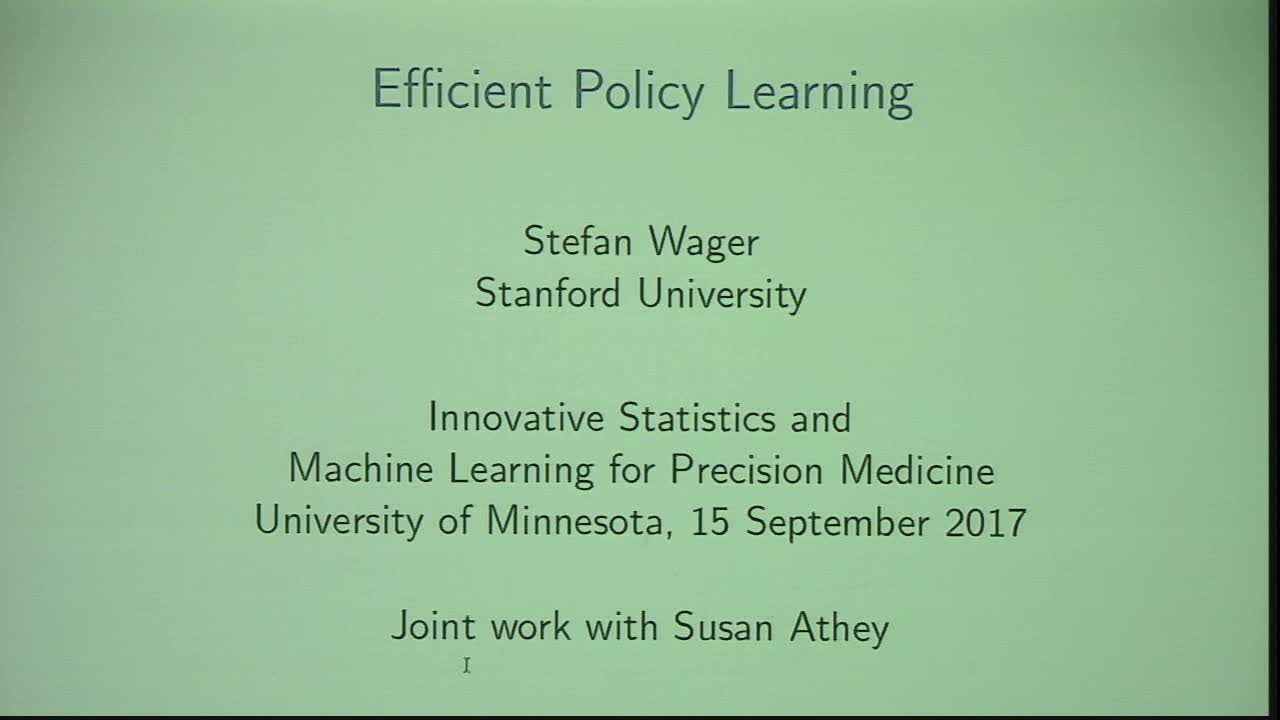Abstract
There has been considerable interest across several fields in methods that reduce the problem of learning good treatment assignment policies to the problem of accurate policy evaluation. Given a class of candidate policies, these methods first effectively evaluate each policy individually, and then learn a policy by optimizing the estimated value function; such approaches are guaranteed to be risk-consistent whenever the policy value estimates are uniformly consistent. However, despite the wealth of proposed methods, the literature remains largely silent on questions of statistical efficiency: there are only limited results characterizing which policy evaluation strategies lead to better learned policies than others, or what the optimal policy evaluation strategies are. We build on classical results in semiparametric efficiency theory to develop quasi-optimal methods for policy learning; in particular, we propose a class of policy value estimators that, when optimized, yield regret bounds for the learned policy that scale with the semiparametric efficient variance for policy evaluation. On a practical level, our result suggests new methods for policy learning motivated by semiparametric efficiency theory.
